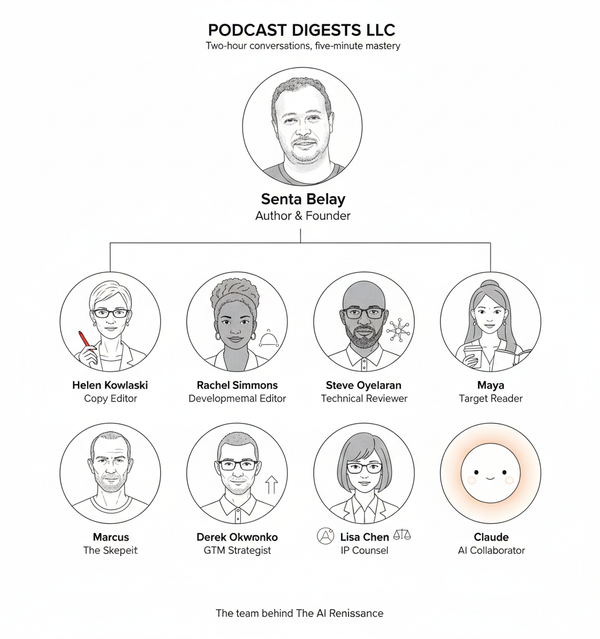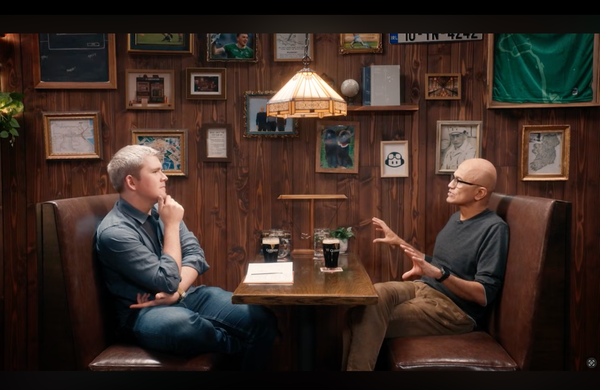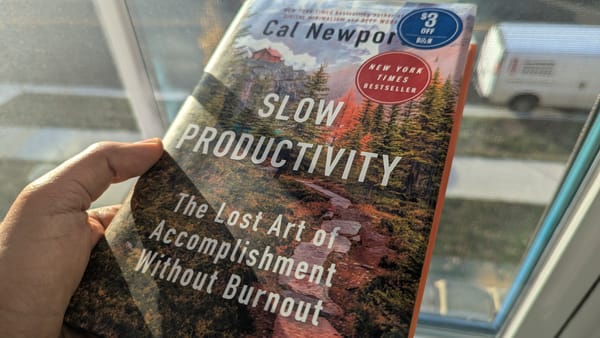Why Saving Money is for Losers: A Former Banker's Guide to Wealth Building
You've been told your entire life that saving every penny is the key to wealth—a virtuous path paved by prudence and sacrifice. You diligently watch your bank balance swell, believing you're making the "safe" choice. But what if that conventional wisdom is actually a recipe for financial stagnation? According to former high-profile investment banker and financial mentor Nischa Shah, you can't save your way to retirement, and over-saving is actively costing you money. This isn't about reckless spending; it's about shifting your mindset from a scarcity-driven saver to a growth-oriented investor.
Nischa, whose content has helped millions, argues that the financial blueprint society pushes—get a job, climb the ladder, buy property—is an outdated model built on a crumbling foundation of external validation and fear. The real path to lasting wealth involves a simple, four-step financial framework, a ruthless culling of high-interest debt, and embracing the power of long-term compounding.
Your Financial Life is Backwards
Nischa’s argument directly challenges several widely-held financial beliefs. Here are her most provocative claims:
- Saving Your Way to Retirement is Impossible: With the rising cost of living and inflation, simply saving money means the value of your cash is being "eaten away quicker" than it can grow. You must invest to build wealth.
- Buying a House Might Be a Bad Investment: The immense pressure to get onto the property ladder is often psychological, driven by old-generation blueprints. For purely financial returns, a tax-advantaged stock market investment can "grow as near as much as the money that I made through the stock market" compared to property, as Shah learned from personal experience.
- Your Financial Pain is Self-Inflicted (The Ostrich Effect): Most people have an "avoidant relationship" with their finances, a "cognitive bias" called the Ostrich Effect, where they avoid looking at negative financial information out of fear. This avoidance, ironically, is the very thing that "keeps you stuck".
- Credit Cards Aren't Inherently Bad: Credit cards are "really good" if you use them to maximize rewards and points, but only if you pay them off in full every single month. If you're carrying a balance, you're just paying for the company's profit, not helping yourself.
The Four Steps to Financial Freedom
Nischa condenses the journey to financial stability and wealth into four non-negotiable, sequential steps. You must complete each step before moving to the next.
1. The Peace of Mind Fund: Beat 59% of Americans
The first step addresses the psychological fear of financial disruption. Calculate one month of your absolute core living expenses—rent, minimum debt payments, utilities, and groceries—and save that amount. This isn't for retirement; it's a small buffer for unexpected emergencies like a car breakdown or broken boiler. Saving just this one month's expense puts you "ahead of 59% of Americans" who can't cover a $1,000 emergency.
2. Cut the Financial Bleeding: Conquer High-Interest Debt
This is the math-driven step. Before investing or saving further, you must eliminate high-interest debt—which Shah defines as anything above 8%. Ignoring this is "like pouring water into a bucket with holes in it and wondering why it's not going to fill up". You're leaking money faster than you can make it. Pay the minimum on all debt, then throw every extra penny at the debt with the highest interest rate first.
3. Build the Emergency Buffer: Buy Yourself Breathing Room
Once high-interest debt is gone, you build a proper emergency fund. Using your core monthly expenses (from Step 1), save three months' worth if you are single with a predictable income, or six months' worth if you are the head of a household, have a mortgage, or have unpredictable income. Research shows having this cushion does more for your "emotional well-being than earning over 200k". It gives you time and stability when major life events occur, such as a health scare or job loss.
4. Stop Saving, Start Investing: Harness Compound Growth
Once the emergency buffer is fully funded, you stop saving for the long term and start investing. Any money saved beyond this buffer and goals in the next five years (like a house deposit) is losing value to inflation. The key to long-term wealth is time and consistency. Shah advises focusing on two tax-advantaged avenues:
- Employer-Sponsored Retirement Account: Invest enough to meet the maximum employer match, as this is essentially free money and comes with a pre-tax benefit.
- Individual Tax-Advantaged Account (ISA/Roth IRA): This allows your money to grow tax-free. In the UK (ISA), the growth is withdrawn tax-free. In the US (Roth IRA), you pay tax on the contribution, but the growth is also tax-free.
For investment choices, keep it simple with index funds (like the S&P 500) and target date retirement funds.
Decades Over Dopamine
Nischa illustrates the profound cost of short-term satisfaction with a cautionary tale from her banking days:
- The Ferrari vs. The Packed Lunch: Nischa worked alongside two colleagues: one who drove a Ferrari, talked about Michelin-star trips, and sought status and stories; and another, Phil, who brought a packed lunch, wore the same clothes, and was selective with his spending. The Ferrari guy was trading his future freedom for present-day validation, forcing him to work longer because his spending matched his high income. Phil, the humble colleague, bought himself early retirement, freedom, and time.
The ultimate message is that you must choose your path: "Decades over dopamine". Every purchase has an opportunity cost—the unseen value of what you could have done with that money. As an example, Shah calculated that a $100 team lunch, if invested in the S&P 500 at the average 10% return over 40 years, is an opportunity cost of nearly $5,000.
Why Dead People Are the Best Investors
The biggest threat to your investment returns isn't the market—it’s you. Nischa points to a Fidelity study which found that one group significantly outperformed all others in investment returns: dead people. The second best? People who forgot they had an account.
- The Fear-Greed Cycle: People underperform funds they invest in because they are constantly "dancing in and out of the fund," selling when the market drops (fear) and buying when it rises (greed).
- The Solution: You must remove your emotions from the equation. By investing in diversified, long-term assets like index funds, you set it and forget it—adopting the winning strategy of the psychologically absent.
In a world drowning in complex, high-risk, speculative noise, Shah's simple, pragmatic, and human-centric approach cuts through the hype. It’s a liberation from the old script, granting the individual power and choice by prioritizing financial peace of mind over external status. The goal isn't just to be rich; it's to be free.



